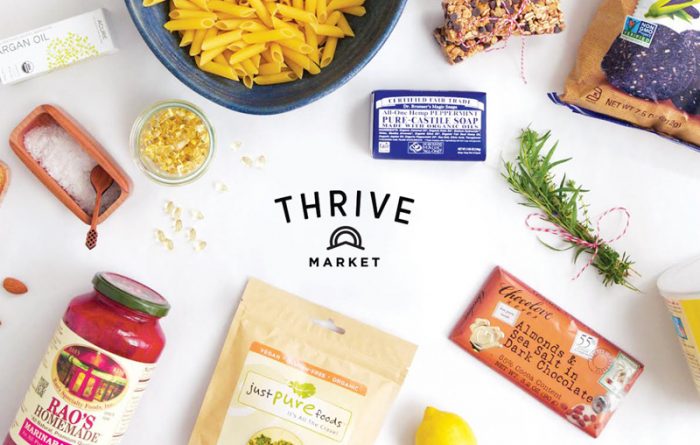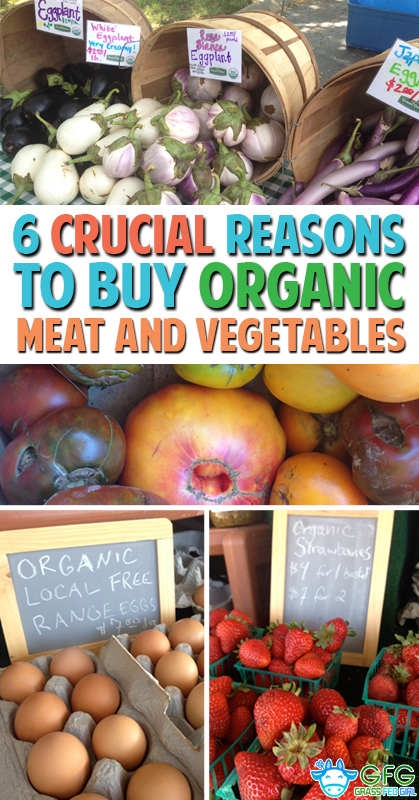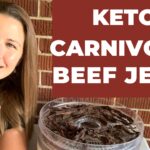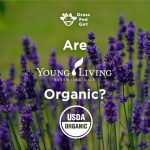6 Crucial Reasons to Buy Healthy Organic Meat and Vegetables
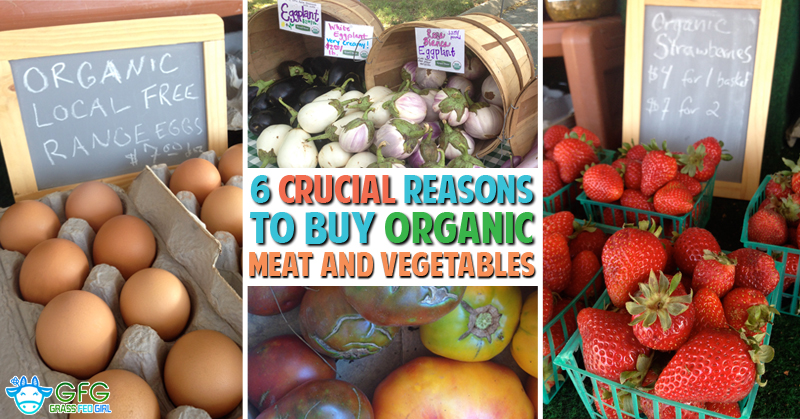 If you are like me, you are balancing your budget while trying to provide healthy food for yourself and/or your family. I often pick up an organic green pepper and gawk at the price of $2.99 or above for ONE PEPPER, and I think “well, I guess I am buying conventional or going without.” Sometimes I stand in the produce section researching on my phone in an effort to figure out if organic is truly worth it. After all my Google searching binges, I have compiled a list of six reasons I choose organic. I often refer to the clean 15 for reassurance but not all the factors are taken into account such as environmentally impact of pesticides and fungicides. Here are more reasons to consider when deciding about if choosing organic really is worth it!
If you are like me, you are balancing your budget while trying to provide healthy food for yourself and/or your family. I often pick up an organic green pepper and gawk at the price of $2.99 or above for ONE PEPPER, and I think “well, I guess I am buying conventional or going without.” Sometimes I stand in the produce section researching on my phone in an effort to figure out if organic is truly worth it. After all my Google searching binges, I have compiled a list of six reasons I choose organic. I often refer to the clean 15 for reassurance but not all the factors are taken into account such as environmentally impact of pesticides and fungicides. Here are more reasons to consider when deciding about if choosing organic really is worth it!
6 Crucial Reasons to Buy Healthy Organic Meat and Vegetables at the Store
1) More Nutrients
If you think about it, a vegetable or fruit that is grown organically has had to ward off insects, fungus, and other pests without the help of harsh, synthetic, industrially produced pesticides, fungicides, and herbicides. As a result, it ends up producing a more robust product. Think survival of the fittest in the garden.
On average, organic is 25% more nutritious in terms of vitamins and minerals than products derived from industrial agriculture. Since on the average, organic food’s shelf price is only 20% higher than chemical food, this makes it actually cheaper, gram for gram, than chemical food, even ignoring the astronomical hidden costs (damage to health, climate, environment, and government subsidies) of industrial food production. – (Read full article here).
2) Insurance Against Franken-Foods
The one full proof way to avoid Genetically Modified Foods (GMO) is to buy organic. All certified USDA Organic foods cannot be genetically modified in any way. I know the research about whether eating GMO food is healthier is still being worked out, it is a fairly new concept and so we don’t really know the long term effects of this alteration of the foods. The main worry I have, and I am sure many share, is the idea of pesticide ready vegetables and fruit. Monsanto is a company that hails their GMO “RoundUp Ready” corn, soybeans, broccoli, etc. This essentially means that they have modified and created a seed that they can then spray the hell out of the crops with synthetic, carcinogenic, petroleum based herbicide, and everything else dies except the crop. That’s freaky and gross, to me at least. I have read a lot of research, like this, that say how un-harmful these types of crops are, but I am very weary of big business telling me something is healthy by their “standards” and I would rather nothing be sprayed on my produce, so the less synthetics I can ingest, the better. One of my top reasons to choose organic food.
3) Arsenic Free Meat Arsenic has been used in animal feed production since the 1940s and has shown up in tests of the actual meat. Even the FDA recognizes that the use of it is hazardous to human health. According to the Organic Consumers Association:
In 2004 and 2005, the IATP tested for total arsenic in retail packages of raw chicken and in “fast food” chicken sandwiches and nuggets. Test results revealed detectable levels of arsenic in the majority of both supermarket and fast food chicken with higher levels found in brands of chicken raised conventionally. Lower or non-detectable levels of arsenic were found in certified organic and other “premium” brands where the use of arsenic-containing feed additives were either legally prohibited or claimed not to have been used (full article here).
4) Salmonella Free Chicken
A new study by Consumer Reports has found that two out of three whole broiler chickens are contaminated with illness-inducing bacteria, while certain types of organic chicken posed the lowest risk… The cleanest birds were organic “air-chilled” broilers — 60 percent of these broilers were free of both pathogens. Typically, chickens are dunked in cold chlorinated water. In the air-chilling process, the carcasses are refrigerated and may be misted, rather than dunked, according to the magazine. (Full article here)
5) Avoid Toxic Sewage Sludge on your Veggies
“If you’re looking for a compelling reason to switch to a primarily organic diet, the fact that it is free from sewage sludge fertilizers is a very good one. Sewage sludge, or “biosolids” — as they’re referred to with a PR spin — began being “recycled” into food crops when, ironically, it was realized that dumping them into rivers, lakes and bays was an environmental disaster.
Today, the U.S. Environmental Protection Agency (EPA) states that about 50 percent of all biosolids are recycled to land. This sludge is what’s leftover after sewage is treated and processed.
Your first thought may be the “yuck factor” of human waste being used to fertilize your food, but that is only the tip of the iceberg. Every time a paintbrush gets rinsed, an old bottle of medications flushed, or solvents are hosed off a factory floor, it ends up in the sewage system.
So it’s not surprising that a past analysis of sewage sludge by the Environmental Working Group found:
- Over 100 synthetic organic compounds including phthalates, toluene, and chlorobenzene
- Dioxins in sludge from 179 out of 208 systems (80%)
- 42 different pesticides — at least one in almost every sample, with an average of almost 2 pesticides per survey sample
- Nine heavy metals, often at high concentrations
And it was sewage sludge that was partly blamed earlier this year for contaminating the White House lawn, and Michelle Obama’s organic vegetable garden, with lead.” – (full article here)
6) Support Sustainable Farmers
Organic farmers have chosen to be stewards of sustainable practices by going against the conventional farming methods to choose practices that nurture and protect the soil. Organic crops also protect the health of the farm worker who has to work with dangerous pesticides when working on a farm that is not organic.
In order to be certified organic, crops must be grown on land free of prohibited substances for at least three years prior to harvest. Crops grown on land in transition to organic (during the first three years after switching from conventional farming) cannot be labeled as organic. National organic standards require producers to use organic agricultural methods and materials that cover soil fertility, the application of manure, crop rotation, and composting. National organic standards prohibit the use of municipal solid waste and sewage sludge as compost ingredients. Organic producers also must follow a National List of Acceptable and Prohibited Materials concerning pest control treatments, fertilizers and seed treatments that they use. All agricultural materials must be evaluated for their long-term effects on the environment and not simply whether they are synthetic or natural. (See full article here)
Lastly, don’t stress yourself out. Stress is more unhealthy than eating conventional vegetables (I am assuming, don’t kill me for that comment). If you are trying to figure out how to balance your budget or just your sanity while grocery shopping, check out the EWG’s list of the worst pesticide laden foods, called the Dirty Dozen and the list of the safest non-organic produce choices called The Clean 15. Check it out here.
A great way to buy healthy and organic groceries from the comfort of your own home is through Thrive Market! It’s like Costco for healthy food!
